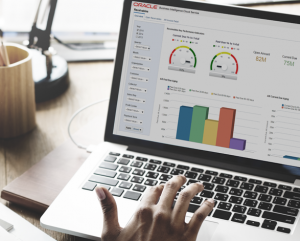Editor’s Note: This guest blog post comes courtesy of Gail Cole with Avalara.
Approximately 20 states have started requiring remote sellers to collect and remit sales tax since June 21, 2018, when the Supreme Court of the United States removed the physical presence rule that long prevented states from taxing remote sales. Eight more states will do the same in the coming months, including Colorado, where sales and use tax compliance can be extraordinarily complex.
Guide to Oracle Cloud: 5 Steps to Ensure a Successful Move to the Cloud
Explore key considerations, integrating the cloud with legacy applications and challenges of current cloud implementations.
Colorado’s economic nexus law will impact out-of-state businesses with substantial sales into the state (more than $100,000 or 200 transactions). It won’t affect in-state sellers, though they may have to comply with remote seller sales tax laws in other states. However, Colorado is also implementing new sales tax sourcing rules, and these will affect both in-state and out-of-state sellers.
Currently, Colorado law requires retailers to collect taxes the customer and seller have in common. When a Colorado customer makes a purchase at a Colorado brick-and-mortar store, all applicable taxes are shared (e.g., state, city, county, and special district). When a Colorado customer purchases an item for delivery from an in-state seller, as with online, mail, or phone sales, the state sales tax may be the only tax the customer and the seller have in common.
Once the new sourcing rules come into play, both Colorado and out-of-state sellers will be required to collect and remit the full sales tax rate in effect at the location of the sale. This is typically the ship-to address for deliveries. In addition to the state sales tax, the total sales tax rate may include city, county, and special district taxes.
Remote sellers that make sales in Colorado and don’t qualify for the small-seller exception will have to start collecting and remitting Colorado sales tax on December 1. The new sourcing rules for sales tax are expected to take effect that same day. Learn more about them in this Avalara blog.

